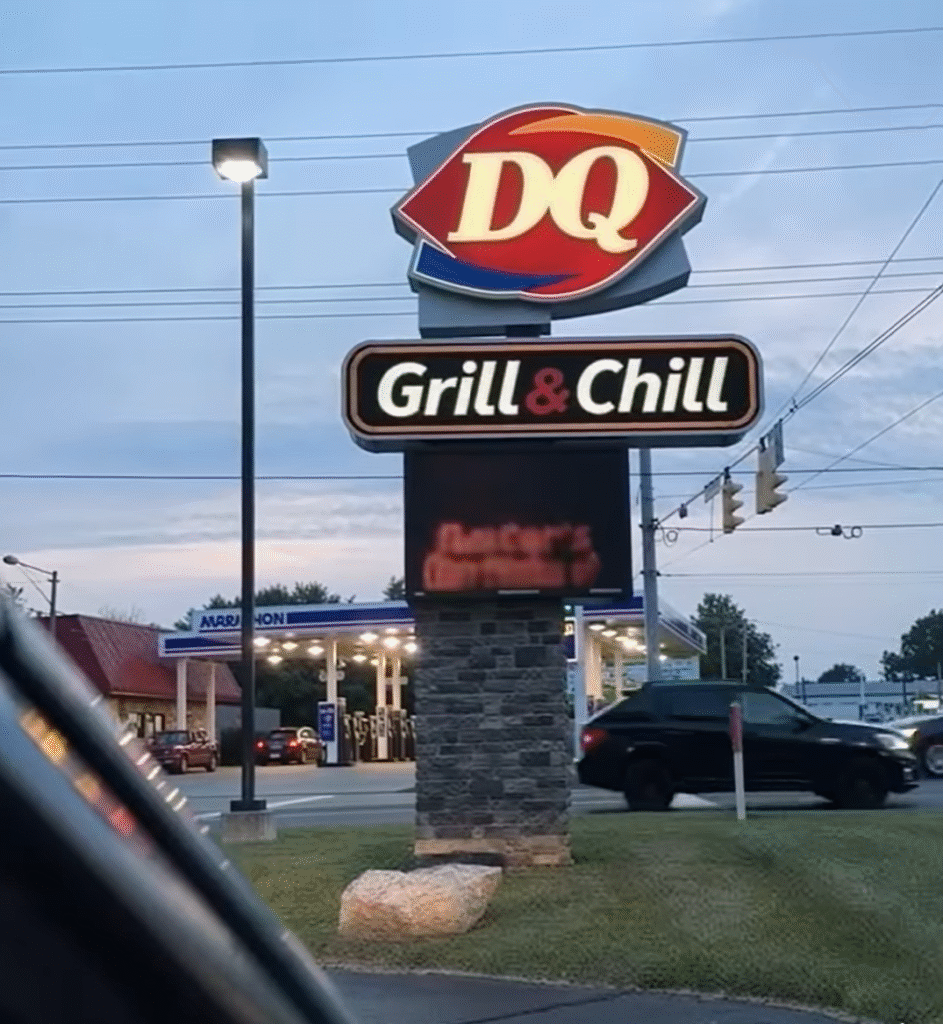
A small-town Dairy Queen in Kewaskum, Wisconsin, recently captured national attention thanks to a roadside sign that went viral across social media. The message combined a heartfelt holiday greeting—“Merry Christmas”—with a special offer: free sundaes for military veterans. What seemed like a simple seasonal gesture quickly sparked conversations, emotional reactions, and debates from coast to coast.
Kevin Scheunemann, the Kewaskum Dairy Queen owner, said the sign reflected his personal values and deep appreciation for those who have served in the military. Long involved in his local community, Scheunemann wanted the holiday season to be a time of gratitude and joy. “It’s a small way to thank veterans for their sacrifices and share a moment of happiness during the holidays,” he explained, noting that the free sundaes were intended to bring smiles to both veterans and their families.
As images of the sign spread on Twitter, Facebook, and Instagram, thousands of people weighed in. Supporters praised the gesture as a touching tribute to veterans and a shining example of the holiday spirit. Many shared personal stories about family members who served, highlighting how simple acts of kindness can strengthen community bonds and foster inclusion.
Yet not everyone viewed the sign favorably. Some critics pointed to the explicit “Merry Christmas” greeting, suggesting it could feel exclusive to those who celebrate other holidays, such as Hanukkah or Kwanzaa, or who simply observe the winter season in their own way. Others questioned whether businesses should display messages with potential political or religious overtones, arguing that such posts could unintentionally alienate customers.
In response, Dairy Queen’s corporate office clarified that the sign reflected the opinion of the individual franchise owner and not the company as a whole. The statement emphasized the brand’s commitment to diversity, equity, and inclusion, reaffirming its mission to create a welcoming environment for customers of all backgrounds, beliefs, and identities.
The incident illustrates how a small-town gesture can quickly ignite national discussion in the digital age. For many in Kewaskum, the sign became a symbol of community generosity and gratitude for veterans. For others, it prompted thoughtful reflection on how businesses communicate in a multicultural society. It shows how even a modest roadside sign can resonate far beyond its original intent, sparking dialogue and highlighting broader societal tensions.
This story also underscores the power of social media to amplify local actions. What began as a simple act of goodwill quickly became a national talking point, demonstrating how deeply people engage with cultural symbols and expressions of values. The varied responses show that messages can be interpreted in many ways, influenced by personal beliefs, regional perspectives, and social trends.
Ultimately, the Dairy Queen sign serves as a reminder of the importance of empathy, communication, and respect in public expressions of identity. It highlights the need for businesses to consider diverse audiences while embracing the meaningful intentions behind acts of kindness.
More than a holiday greeting or free sundae offer, the viral sign has become a lens through which to explore how words and symbols carry different meanings for different people. It reflects the delicate balance communities and businesses face in honoring traditions, expressing values, and fostering respect in an increasingly connected world.


